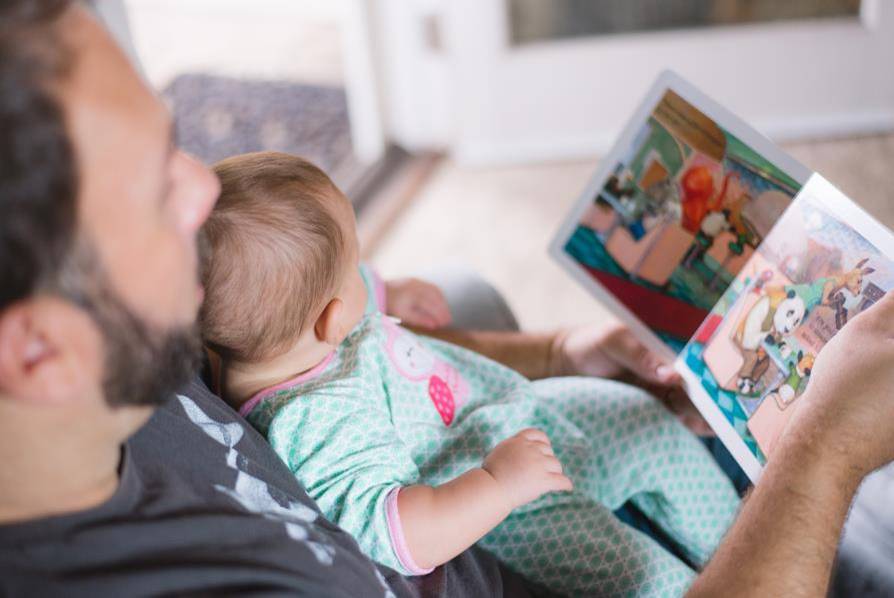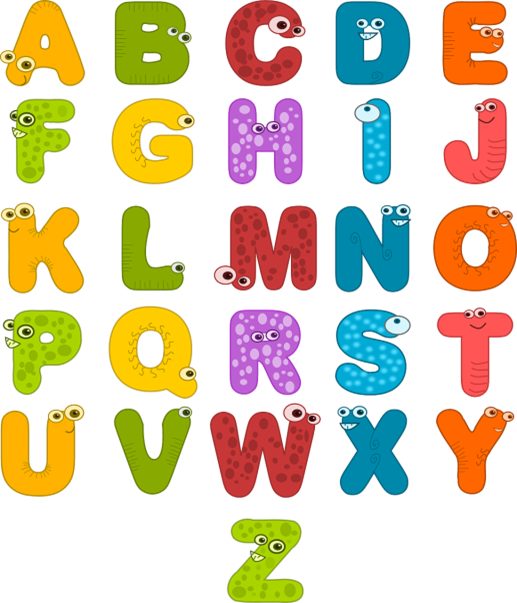How Can I Prepare My Baby or Toddler For Reading?
Virtually everyone connected with education seems to agree that it’s important for young children to develop early literacy skills. Learn what these skills are and how you can help your child develop them.
Click here for a summary of this article, or browse the contents of the main article below…
Contents:
- What Are Early Literacy Skills?
- Why Are Early Literacy Skills Important?
- How Can I Teach My Child Early Literacy Skills?
- Comprehension of Spoken English
- Print Awareness
- Phonological awareness
- Developing Phonemic Awareness
- Letter knowledge
- Pre-Writing Skills
- General Knowledge
- Activities to Develop Early Literacy Skills.
- References
Summary
Important aspects of early literacy include good comprehension of spoken English, print and phonological awareness, letter knowledge, pre-writing skills and general knowledge. To help your child develop these things you don’t need any special early literacy programmes. Just do the following things:
- Read to your child frequently and engage them in regular, uninterrupted conversations about everyday things. Expose them to a wide variety of books and experiences and talk about the things you read and see.
- Do nursery rhymes and sing to your child to teach them about rhyme and show them how to clap out syllables in words.
- Teach your child to recognise all the letters of the alphabet and the sounds associated with them (you don’t teach them the names of the letters before they can read).
- Let your child practise writing letters.
- Do everything you can to encourage a love of books.
What Are Early Literacy Skills?
Early literacy skills are abilities that lay the foundation for learning to read. They are sometimes described as reading readiness skills.
Examples of early literacy/reading readiness skills include:
- Good comprehension of spoken language, which requires a reasonable vocabulary and familiarity with the basics of grammar.
- Print awareness – an understanding that writing represents spoken words and that we read lines of text from left to right. The ability to turn the pages of books, starting from the front cover and progressing to the back cover.
- Phonological awareness – the ability to recognise different elements of sounds in spoken language. For example, being able to:
- determine how many words there are in a short sentence or phrase,
- recognise words that rhyme,
- count or clap out the number of syllables in a word.
- recognise individual sounds in spoken words (phonemic awareness). For example, notice which words in a sentence start with the same sound or end in the same sound.
- Letter knowledge – an awareness that letters have different shapes and that they make up written words. Know that letters represent spoken sounds.
- Pre-writing skills – fine motor skills developed enough to be able to grip a pencil and draw reasonably straight and curved lines. Perhaps able to write own name or make a recognisable copy of a letter or two.
- Good level of general knowledge. Children need a minimum level of background knowledge to be able to understand what they are reading.
Motivation to read is another important factor that influences a child’s ultimate reading ability, so it’s vital to encourage a love of books in children as well as teaching them basic literacy skills.

Why Are Early Literacy Skills Important?
Studies show that literacy skills developed before school are strong indicators for future reading ability.
For example, a publication based on a report from the U.S. National Early Literacy Panel stated:
“The years from birth through age 5 are a critical time for children’s development and learning. … Children who develop more literacy skills in the preschool years perform better in the primary grades.” 1
If a child hasn’t developed all of the skills we mentioned above, this doesn’t necessarily mean they aren’t ready for reading instruction. However, children who are advanced in most of the areas are likely to make faster progress than children who are weak in most areas.
Children with significant deficiencies in phonological awareness are more likely to have problems developing early reading skills and are more likely to be diagnosed as dyslexic in the future.
How Can I Teach My Child Early Literacy Skills?
Most early literacy activities for babies, preschoolers and toddlers are based on normal parent/child interactions.
We describe how you can develop some of the important skills below…
Comprehension of Spoken English
Early literacy and language skills are interlinked.
If children have a poor understanding of spoken English they will find it difficult to comprehend written English.
Renowned cognitive scientist Mark Seidenberg has written:
“We read with our eyes, but the starting point for reading is speech. … measures of prereaders’ spoken language are strong predictors of later progress.”
Seidenberg, M. (2017) Language at the Speed of Sight, Basic Books.
Communication and language are a key focus for developing early reading skills in the early years foundation stage (EYFS) of the UK National Curriculum.
However, children should be developing these skills long before they start preschool.
Fortunately, parents don’t need any specialised knowledge to help their children…
Talking to your child often is the key to developing good verbal communication skills. And of course, reading to them is important too (see the section on print awareness below).


When children are very young, parents should point out objects and say their names and also describe actions like clapping, sitting, smiling and walking etc. The National Literacy Trust, an independent UK charity, has produced some very helpful resources for improving children’s talking and listening skills, which you can find on their ‘Words for Life’ site.
They also recommend using strollers/pushchairs where the child is facing the parent because these provide more parent/child interaction.

Young children don’t need to learn all of the terminology associated with grammar, but they can learn the basic rules of grammar subconsciously by listening to adults during conversations. For example, they soon realise that if you say ‘cats’ rather than ‘cat’ you are talking about more than one. And they know the difference between “we’re going to the playground” and “we’ve been to the playground”.
When children are a bit older, you can develop their comprehension of spoken language by engaging them in conversations and asking more open-ended questions. This can be when they are playing, at the dinner table or when you are out and about. Try to avoid distraction from background noises where possible.
See our article ‘Reading Comprehension Basics’ for more information about helping your child to develop good comprehension of spoken English.
Print Awareness
The best way to develop print awareness is to start reading to your child from a very early age. Reading has a variety of benefits; research shows that reading books with a child from early infancy can boost vocabulary and reading skills four years later when they start school.2
It’s important to spend some time reading with your child every day if possible. Children who grow up to be good readers have been read to, on average, for 30 minutes every day3, so this would be a sensible target to aim for.
You can start from when they are only a few months old and able to sit up on your lap. Use simple cloth books or picture books and talk about the pictures. Let them hold the books and turn (or even chew) the pages.
When you get books with words in them, point to the words as well as the pictures and say the words clearly. This will help them to see the connection between written and spoken words.
The most important thing is to make reading fun; sharing books should be an intimate experience that both you and your child look forward to. Try to make sure there is no TV on or other distractions from siblings.
Variety is important. Read fictional and factual books, lift the flap books, books with textured pictures and books that make noises. But if your child wants to do the same book a dozen times in a row, let them. Look for some extra little details to talk about each time.
Click o the following link to our article on the best books for beginning readers for more ideas.
Here are some other tips:
- have lots of books in the house, you don’t have to buy them all – use your library,
- run your finger under the text in books so your child gets the idea that print represents spoken words and we read from left to right,
- set an example by letting your child see you read for your own pleasure,
- take books with you when you are going places where you might have to wait around such as the doctors, dentists or barbers,
- go to story-times in your local library,
- let your child explore bookshops.
See our article ‘Reading Comprehension Basics‘ for more information about getting the most out of reading to your child.
Phonological awareness
Almost all children with normal hearing develop some phonological awareness naturally; if they didn’t they wouldn’t be able to understand spoken language or talk properly.
Everyday conversations and ordinary reading time are sufficient to develop some phonological skills, but there are other things you can do to help.
We discuss how phonological awareness develops in another article and we provide more detail about teaching it to young children in our main article on phonological awareness.
Developing Phonemic Awareness…
Some children find it difficult to distinguish between the individual sounds (phonemes) in words. This matters, because identifying the individual sounds represented by letters is an important part of reading. Consequently, some educators give children specific phonemic awareness training before they introduce them to letter symbols and phonics teaching.
However, Susan Godsland, author of the dyslexics.org.uk site, claims that speech sound awareness training is not essential for learning to read and spell. 4 She cites research that’s demonstrated phonemic awareness can be developed very well using synthetic phonics without any prior PA training.
Other academics agree that it isn’t necessary to teach phonemic awareness as an isolated skill.
See our passage, ‘What’s the best way to teach phonemic awareness?‘ for more information and guidance.
Letter knowledge
Children will never become good readers unless they learn to recognise the shapes of all of the individual letters and the sounds represented by each letter. However, it’s not important, or even helpful, for them to know the letter names before they learn to read. See our article, “Should I Teach My Toddler Letter Names?”, for a more detailed discussion of this issue.

Letter knowledge is the early literacy skill that provides the foundation for understanding the alphabetic principle.
Teaching this is fairly straightforward, but there are some important details you need to be aware of and we’ve outlined these in our article ‘How to Teach Phonics’.
Pre-Writing Skills
Although we increasingly use electronic devices to type words nowadays, learning to write is still important for young children for a number of reasons…
Writing letters helps children to learn the shapes of them better than just looking at them – it’s a form of multisensory learning6,7. And when children learn to write whole words this actually helps them to read and spell better too8. When we write, the physical movement of our hands helps to reinforce our memory of the word. Typing with a keyboard doesn’t seem to have the same effect.
Writing requires good fine motor skills. It involves the coordination of small muscles to make precise, synchronised movements of the hands and fingers. It also needs detailed visual focus and knowledge of letter shapes.
Very young children usually find writing difficult because they don’t have the dexterity of adults. However, children can improve their writing skills with the right kind of practice, and they can start this when they are still quite young. For detailed guidance, see our article ‘How to Teach Handwriting’.
General Knowledge
Studies have shown that it’s important for us to have some background knowledge about the subject and context of what we are reading when we’re trying to make sense of it.
Children will encounter a wide range of subject material during their school years, so it’s important to provide your child with a variety of books and experiences that will improve their general knowledge and teach them about the world. So read both fiction and non-fiction books.
Educational experiences might include visits to places where they can see and discuss the natural world, such as the countryside or safari parks. You might also want to look at some child-friendly museums or places of historical interest.
Even very simple things like looking around shops and supermarkets can be learning experiences for young children, especially since so much shopping is done online these days. Discuss where the various products come from and maybe follow up with a visit to a farm.
It doesn’t all have to be about books and educational visits, even discussing your child’s feelings and actions at different times can help them to understand why characters in books might behave in a particular way. And there are some very good educational TV programmes, websites and children’s news programmes out there.
Developing a good level of general knowledge is something that takes time – years rather than weeks or months, so don’t attempt to cram in a lot of facts about any particular subject. Just try to vary what your child reads and what experiences they are exposed to. Over time, they will learn a surprising amount and have an easier time in school as a result.
Activities to Develop Early Literacy skills
We’ve compiled a variety of activities, ideas and resources that can help children develop many of the skills discussed in this article. Click on the following link to access these: ‘Phonological/Phonemic Awareness Activities for Parents and Teachers’.
References
- Early Literacy: Leading the Way to Success, A Resource for Policymakers.
- Cates, C. Early Reading Matters: Long-term Impacts of Shared Bookreading with Infants and Toddlers on Language and Literacy Outcomes. AAP News, May 2017: http://www.aappublications.org/news/2017/05/04/PASLiteracy050417
- Early Literacy Development, Reading Rockets: http://www.readingrockets.org/reading-topics/early-literacy-development
- High-Quality Phonics. Phonological/Phonemic Awareness: https://www.dyslexics.org.uk/high-quality-phonics-uk-style-synthetic-phonics-linguistic-phonics/
- Suortti, O. and Lipponen, L. Phonological awareness and emerging reading skills of two- to five-year-old children. Journal of Early Child Development and Care. Volume 186, 2016 – Issue 11 ( 2016): http://www.tandfonline.com/doi/abs/10.1080/03004430.2015.1126832?src=recsys&journalCode=gecd20&
- Longcamp, M. et al. (2005), The influence of writing practice on letter recognition in preschool children: A comparison between handwriting and typing, Acta Psychologica, Vol. 119, Issue 1, May 2005, Pages 67-79: https://www.ncbi.nlm.nih.gov/pubmed/15823243
- The University of Stavanger. “Better learning through handwriting.” ScienceDaily. ScienceDaily, 24 January 2011. <www.sciencedaily.com/releases/2011/01/110119095458.htm>.
- McGuiness, D. (2002) A Prototype for Teaching the English Alphabet Code, Reading Reform Foundation Newsletter No. 49 page 21: http://www.rrf.org.uk/pdf/nl/49.pdf